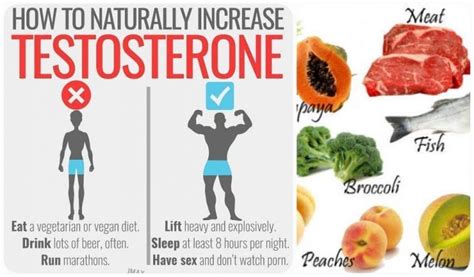Beyond diet, what daily habits optimize men’s natural testosterone levels?

While diet plays a significant role in overall health, including hormonal balance, the conversation around optimizing men’s natural testosterone often stops there. However, a holistic approach recognizes that testosterone production is influenced by a complex interplay of lifestyle factors. Moving beyond just food choices, several daily habits are critical for supporting and enhancing this vital male hormone naturally.
The Foundation: Quality Sleep
Perhaps one of the most underrated pillars of hormonal health is sleep. Studies consistently show that insufficient and poor-quality sleep can significantly depress testosterone levels. The majority of your daily testosterone is produced during sleep, particularly during the deep REM cycles. Aim for 7-9 hours of uninterrupted sleep per night. Establish a consistent sleep schedule, create a dark, cool, and quiet bedroom environment, and avoid screens before bedtime to optimize your sleep quality.

Stress Reduction: Taming the Cortisol Beast
Chronic stress is a silent killer of testosterone. When you’re under stress, your body releases cortisol, a hormone designed for fight-or-flight responses. Elevated cortisol levels can directly suppress testosterone production. Incorporating stress-reducing practices into your daily routine is vital. This could include mindfulness meditation, deep breathing exercises, spending time in nature, engaging in hobbies, or simply setting aside time for relaxation. Learning to manage stress effectively is not just for mental well-being; it’s a direct investment in your hormonal health.
Strategic Exercise: More Than Just Lifting
Regular physical activity is a well-established testosterone booster, but not all exercise is created equal. High-intensity interval training (HIIT) and strength training, particularly exercises that engage large muscle groups (like squats, deadlifts, and bench presses), have been shown to be most effective. Aim for 3-5 sessions per week, focusing on progressive overload. While endurance exercise is good for cardiovascular health, excessive long-duration cardio without adequate recovery can sometimes have the opposite effect on testosterone. Balance is key.

Sunshine and Supplements: Vitamin D’s Role
Vitamin D, often called the ‘sunshine vitamin,’ is actually a hormone precursor itself and plays a crucial role in testosterone production. Many men are deficient in Vitamin D, especially those living in less sunny climates or spending most of their time indoors. Aim for regular, safe sun exposure (10-30 minutes daily, depending on skin type and location) or consider supplementation, especially during winter months, after consulting with a healthcare professional. Zinc and Magnesium are also essential minerals that support testosterone synthesis and can be supplemented if dietary intake is insufficient.
Beyond the Obvious: Environment and Mindset
Environmental Toxins
Our modern environment is rife with endocrine-disrupting chemicals (EDCs) found in plastics (BPA, phthalates), pesticides, and personal care products. These chemicals can mimic hormones or interfere with natural hormonal pathways, potentially lowering testosterone. Reduce exposure by using glass containers, choosing organic produce, and opting for natural, fragrance-free personal care items.

Social Connection and Purpose
While less tangible, social connection, a sense of purpose, and healthy competition can also positively influence testosterone. Engaging in fulfilling work, pursuing challenging hobbies, and maintaining strong social bonds contribute to overall well-being, which indirectly supports hormonal health. Men thrive on a sense of accomplishment and belonging, which can create a positive feedback loop for testosterone production.

Conclusion
Optimizing natural testosterone levels is not a one-off event but a continuous process rooted in consistent, healthy daily habits. Beyond a healthy diet, prioritizing quality sleep, effectively managing stress, engaging in strategic exercise, ensuring adequate Vitamin D levels, and minimizing exposure to environmental toxins form a powerful synergistic approach. By integrating these practices into your daily life, men can naturally support their hormonal health, leading to improved energy, mood, muscle mass, and overall vitality.










